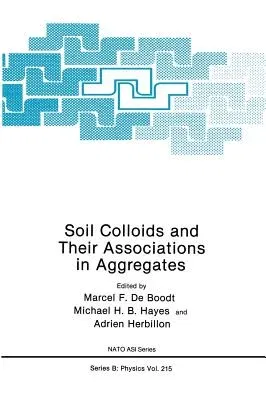Soil Colloids and Their Associations in Aggregates (1990)Hardcover - 1990, 28 February 1991

Qty
1
Turbo
Ships in 2 - 3 days
In Stock
Free Delivery
Cash on Delivery
15 Days
Free Returns
Secure Checkout

Part of Series
NATO Science Series B:
Part of Series
NATO Asi Series. Series B, Physics
Part of Series
NATO Science Series: B:
Part of Series
NATO Science Series B: Physics
Part of Series
NATO Science Series B: (Closed)
Print Length
598 pages
Language
English
Publisher
Springer
Date Published
28 Feb 1991
ISBN-10
0306434199
ISBN-13
9780306434198
Description
Product Details
Book Edition:
1990
Book Format:
Hardcover
Country of Origin:
US
Date Published:
28 February 1991
Dimensions:
25.4 x
17.78 x
3.33 cm
ISBN-10:
0306434199
ISBN-13:
9780306434198
Language:
English
Location:
New York, NY
Pages:
598
Publisher:
Series:
Weight:
1283.67 gm